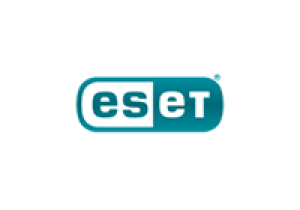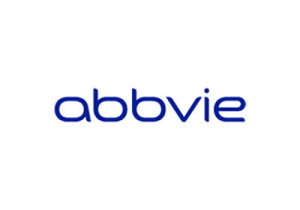Bruno Dominique Lanvin
At the World Bank, Bruno Lanvin is the World Bank’s lead advisor on e-strategies, based in Geneva (Switzerland). His work currently focuses on e-government and e-strategies in Eastern/Central Europe and the Middle East. During the course of the last two years, he has been the lead author of the World Bank’s ‘E-strategies Monitoring and Evaluation Toolkit’ (2004), and a contributor to several major studies (by the World Bank, the UN ICT Task Force, etc.) on the role of ICT in development, the contribution of innovation to competitiveness, and the changing role of international cooperation in information societies (2005). In Geneva, he acts as World Bank’s focal point for the preparation of the World Summit on Information Society (WSIS, to be held in Tunis in November 2005). From June 2001 to December 2003, he was the Manager of the Information for Development Program (infoDev), a multi-donor program focusing on extending digital opportunities for all (www.infodev.org); so far, infoDev has financed over 170 projects in some 85 countries around the world.
In 2000, Mr. Lanvin was appointed Executive Secretary of DOT Force, the G-8 initiative launched by the Okinawa Summit of July 2000 to bridge the Digital Divide (www.dotforce.org). He was recruited by the World Bank in September 2000 as senior advisor for e-commerce and e-government. Until then, he was Head of Electronic Commerce in the United Nations Conference on Trade and Development (UNCTAD) in Geneva.
During his twenty years with the United Nations, he has occupied various senior positions including Chief of Cabinet of the Director General of the United Nations in New-York, Head of Strategic Planning and later Chief of the SME Trade Competitiveness Unit of UNCTAD/SITE. He has been the Deputy Executive Secretary of UNISTE (UN International Symposium on Trade Efficiency) in 1994 and General Manager of GETUP (Global Electronic Trade UN Partnership) in 1998. From 1994 to 1998, he was the World Coordinator of the United Nations Trade Point Program, a global e-commerce network operating in over 100 countries. In 1999 and 2000, he managed UNCTAD's component of the UN 'Development Account', devoted to e-commerce and development, and organized a series of regional and interregional workshops on e-commerce, allowing more than 2000 representatives from governments and enterprises to exchange experiences and best practices in the area of e-commerce.
A frequent keynote speaker and participant in international conferences on the ‘New Economy’, he has published a large number of articles and books on ICT and development. He was the main drafter, team leader and editor of 'Building Confidence: electronic commerce and development', published in January 2000. In 2003 and in 2004 he co-authored the Global Information Technology Report, (INSEAD, The World Economic Forum, infoDev).
Bruno Lanvin has worked in more than 60 countries. He holds a BA in Mathematics and Physics from the University of Valenciennes (France), an MBA from Ecole des Hautes Etudes Commerciales (HEC) in Paris, and a PhD in Economics from the University of Paris I (La Sorbonne) in France. He speaks and writes French (mother tongue), English, Spanish and has a working knowledge of Italian, Portuguese, Russian and some Chinese.
Other:
• Chairman, Forum Committee, Telecom Inter@ctive (1997)
• Member of the ITU Regulatory Colloquium (1996 and 1998)
• General Manager, GET UP (Global Electronic Trade UN Partnership)(1998)
• President of the Geneva Internet Society (ISOC) Chapter (1995-97)
In 2000, Mr. Lanvin was appointed Executive Secretary of DOT Force, the G-8 initiative launched by the Okinawa Summit of July 2000 to bridge the Digital Divide (www.dotforce.org). He was recruited by the World Bank in September 2000 as senior advisor for e-commerce and e-government. Until then, he was Head of Electronic Commerce in the United Nations Conference on Trade and Development (UNCTAD) in Geneva.
During his twenty years with the United Nations, he has occupied various senior positions including Chief of Cabinet of the Director General of the United Nations in New-York, Head of Strategic Planning and later Chief of the SME Trade Competitiveness Unit of UNCTAD/SITE. He has been the Deputy Executive Secretary of UNISTE (UN International Symposium on Trade Efficiency) in 1994 and General Manager of GETUP (Global Electronic Trade UN Partnership) in 1998. From 1994 to 1998, he was the World Coordinator of the United Nations Trade Point Program, a global e-commerce network operating in over 100 countries. In 1999 and 2000, he managed UNCTAD's component of the UN 'Development Account', devoted to e-commerce and development, and organized a series of regional and interregional workshops on e-commerce, allowing more than 2000 representatives from governments and enterprises to exchange experiences and best practices in the area of e-commerce.
A frequent keynote speaker and participant in international conferences on the ‘New Economy’, he has published a large number of articles and books on ICT and development. He was the main drafter, team leader and editor of 'Building Confidence: electronic commerce and development', published in January 2000. In 2003 and in 2004 he co-authored the Global Information Technology Report, (INSEAD, The World Economic Forum, infoDev).
Bruno Lanvin has worked in more than 60 countries. He holds a BA in Mathematics and Physics from the University of Valenciennes (France), an MBA from Ecole des Hautes Etudes Commerciales (HEC) in Paris, and a PhD in Economics from the University of Paris I (La Sorbonne) in France. He speaks and writes French (mother tongue), English, Spanish and has a working knowledge of Italian, Portuguese, Russian and some Chinese.
Other:
• Chairman, Forum Committee, Telecom Inter@ctive (1997)
• Member of the ITU Regulatory Colloquium (1996 and 1998)
• General Manager, GET UP (Global Electronic Trade UN Partnership)(1998)
• President of the Geneva Internet Society (ISOC) Chapter (1995-97)
Sign in to ITAPA Health&Care 2025
-
Slovak Information Society and Competitiveness Strategies - point of view of the World Bank

















